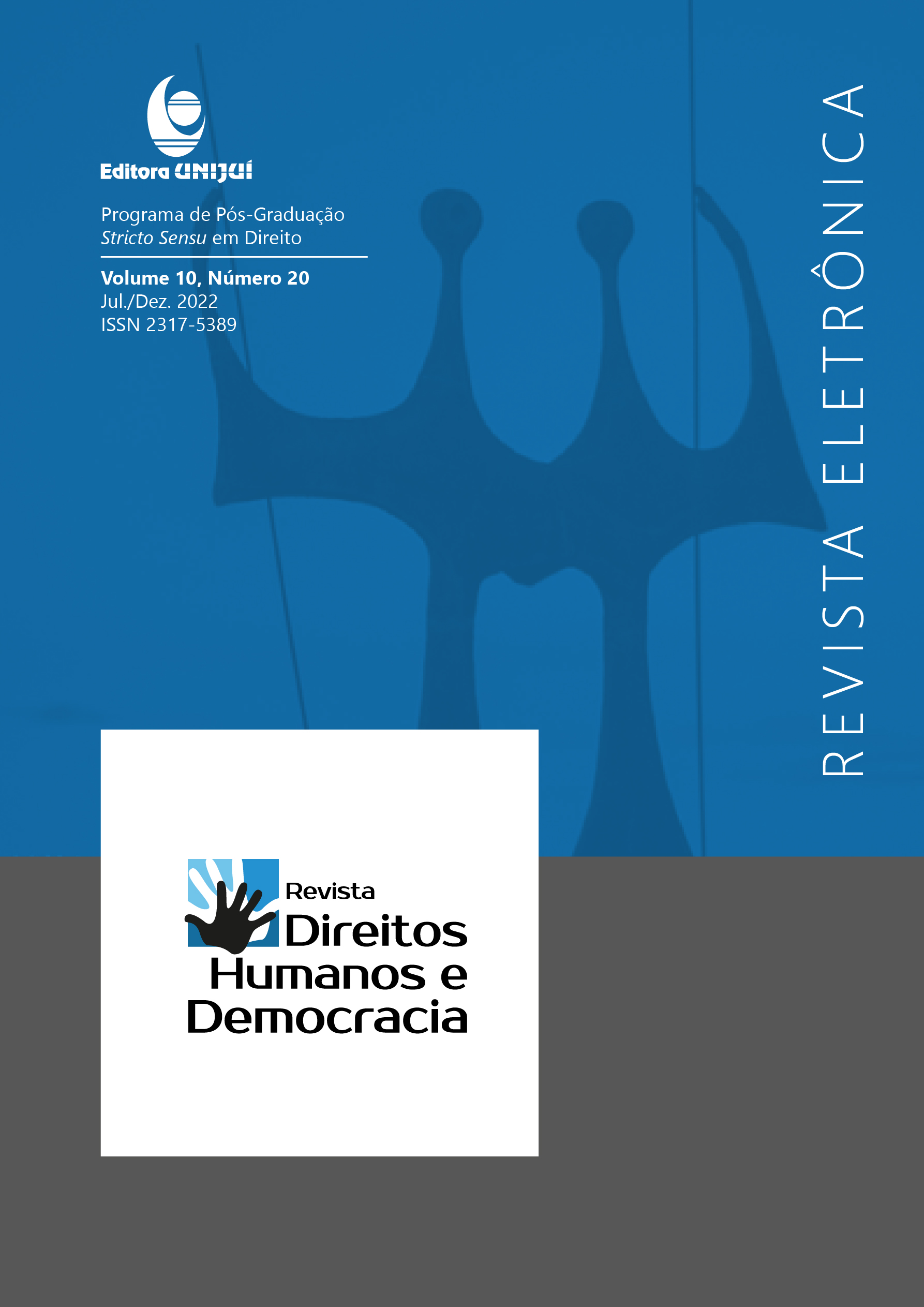The crossings marks in the speeches and the (in)applicability of the refuge institute
DOI:
https://doi.org/10.21527/2317-5389.2022.20.13416Keywords:
Refuge, International Law, Discourse AnalysisAbstract
Political conflicts, the economic crisis, food scarcity and the destruction of the environment are some of the factors that have increasingly made the lives of people in their territories of origin unbearable and therefore seek refuge in other countries. This article is an invitation to reflect on the right of refugees in the process of receiving these people in other countries, for this purpose, we sought support in international norms, both in the Human Rights and in International Law. In addition, interviews and reports of the experiences of these refugees were collected. The analysis was based on the studies by Maziére (2007) and Orlandi (1999) with regard to Discourse Analysis (AD), in order to understand the institute of refuge tied to the culture and personal experiences. It is concluded by the interest of the state in the construction of a generic stereotype that promotes the invisibleness of these subjects with consequent precariousness of the labor activity and effective inapplicability of international normative documents.
Downloads
Published
How to Cite
Issue
Section
License
Copyright (c) 2022 Revista Direitos Humanos e Democracia

This work is licensed under a Creative Commons Attribution 4.0 International License.
By publishing in the Revista Direitos Humanos e Democracia, authors agree to the following terms:
Articles are licensed under the Creative Commons Atribuição 4.0 Internacional (CC BY 4.0), which allows:
Share — copy and redistribute the material in any medium or format;
Adapt — remix, transform, and build upon the material for any purpose, including commercial use.
These permissions are irrevocable, provided the following terms are respected:
Attribution — authors must be properly credited, with a link to the license and indication of any modifications made;
No additional restrictions — no legal or technological measures may be applied that restrict the use permitted by the license.
Notices:
The license does not apply to elements in the public domain or covered by legal exceptions.
The license does not grant all rights required for specific uses (e.g., image rights, privacy, or moral rights).
The journal is not responsible for opinions expressed in the articles, which remain the sole responsibility of the authors. The Editor, with the support of the Editorial Committee, reserves the right to suggest or request modifications when necessary.
Only original scientific articles presenting research results of interest, not previously published or simultaneously submitted to another journal with the same purpose, will be accepted.
References to trademarks or specific products are intended solely for identification purposes and do not imply any promotional endorsement by the authors or the journal.
License Agreement: Authors retain copyright over their articles and grant the Revista Direitos Humanos e Democracia the right of first publication.













